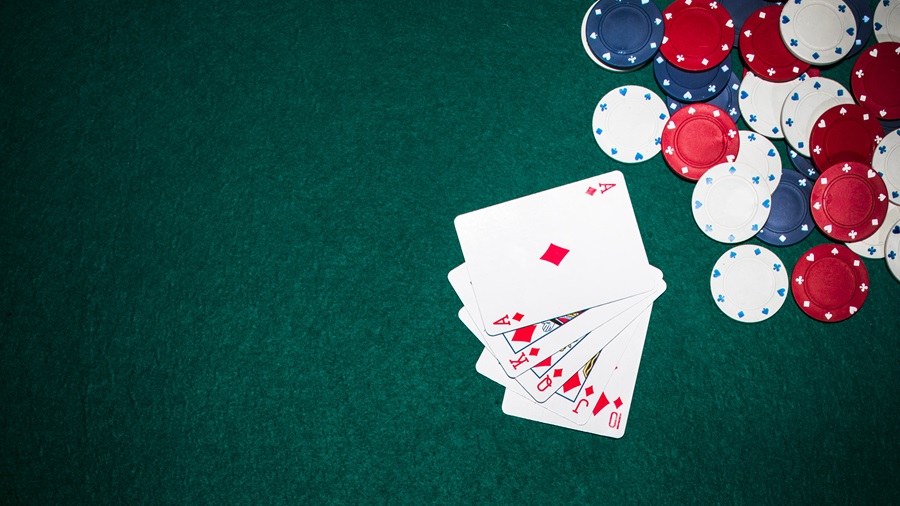6 proofs that poker develops us
Playing poker is a great way to improve reasoning, contemplation, and thinking skills as well as decrease tension
PEOPLE PLAY POKER for different reasons: some do it to develop their skills, while others do it to get a winning hand. However, most poker players are unaware that simply playing for enjoyment trains their thinking. Poker has been shown to increase people’s attentiveness and cognitive abilities.
You should play poker on occasion to have a better understanding of how effective your brain is. This game is sometimes compared to chess, where planning strategies and logical solutions ahead of time is essential for winning. In poker, these abilities improve your chances of winning.
If your group of friends can’t get together to play a game, no worries. Today, like-minded people can be found in online casinos. Don’t be afraid of them, there are a huge number of low deposit casinos for Canadian players, where you will find like-minded people and won’t worry about the safety of your money, because all casinos are licensed.
Well, let’s continue with why poker is good for your brain.

Active Brain Work
As one of the most played card games worldwide, poker calls for strategic thinking, perseverance, and a lot of practice. Poker players must be extremely focused on the game for a long period of time. Poker also uses counting and statistics, so people who play regularly often have a good handle on mental counting.
Abstract and creative thinking skills are also frequently required at the table. For example, you’re attempting to figure out what your opponents have. You catch up on your opponents’ subtle movements and body language, which helps you make future judgments. The more you practice, the more you boost your brain and gain confidence and creativity.
Some players spin their chips between their fingers while they sit at the table, waiting for their turn. This simple practice has various advantages. First, you improve your hand-eye coordination and dexterity. Second, rolling chips distract opponents from your face, allowing you to focus more on the game.
Social Aspect
The player converses, jokes, and engages with other players in both online and live poker rooms. A crucial poker element is interacting with your opponents. While playing, understanding strategies is not nearly as useful as communicating. It’s an excellent method to learn more about the game and other people, and it also aids in the development of social and communication skills. When a player feels uneasy at the table, talking to one another might ease their tension and anxiety.
Emotional Control
Throughout the whole session, the player is kept on edge when playing poker. As a result, this kind of gambling calls for self-control and intense focus on the game. Here’s where poker players’ emotional side comes into play: they can feel a lot of different emotions, including happiness, rage, worry, and elation. The ability to regulate one’s emotions is crucial for poker players who wish to win. An excellent player never lets emotion cloud judgment or cause them to make poor decisions.
Your brain becomes successfully trained when you can control the wave of emotions while playing. Because their opponents are unable to foresee movements with confidence, those who are accustomed to managing their emotions at the table become pros.

Improving Memory
Playing poker usually takes a long time. Just one round lasts on average 15-20 minutes. This means that you need to grasp a lot of information over a long period of time, and your memory will become your assistant. Poker pros spend a lot of time observing what is happening at the table. Any information will be useful for correct decision-making.
You need to remember the reactions of other players to various outcomes of the game, compare your combinations with those of your opponents. Doing all these things at the same time puts a lot of stress on your brain, but your memory gets a good workout.
Improving Math Skills
The game of poker combines both luck and cold calculation. However, many players neglect the last point. For example, some poker players claim that they rely only on their intuition when making decisions. However, winning statistics show that most tournament winners relied on logical thinking and their mathematical skills. To rule out certain table outcomes and draw correct conclusions, players often count the cards on the table and in the hands of their opponents.
Having Good Sleep
After playing poker, the player feels tired and exhausted. The online version tires the poker player no worse than a tournament in a land-based poker room. As we’ve already discovered, playing poker puts a lot of stress on the brain and can make a person feel like they’ve just run a marathon. Your body will require rest and recovery, so falling asleep after playing poker is much easier.
There are many facets to the game of poker, and each one requires meticulous instruction at a different level depending on the player’s progress. Every circumstance compels us to consider our every action while basing it on a variety of changeable circumstances. Therefore, we may conclude that playing poker is a great way to improve reasoning, contemplation, and thinking skills as well as decrease tension.

